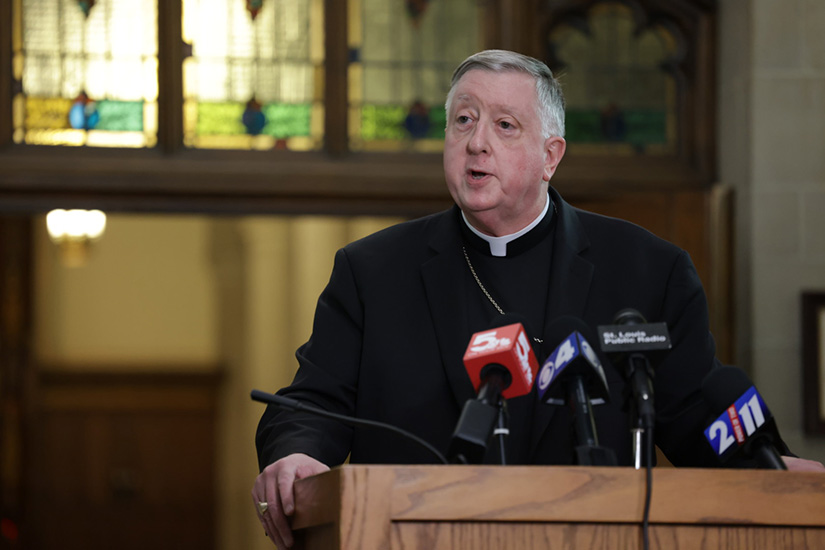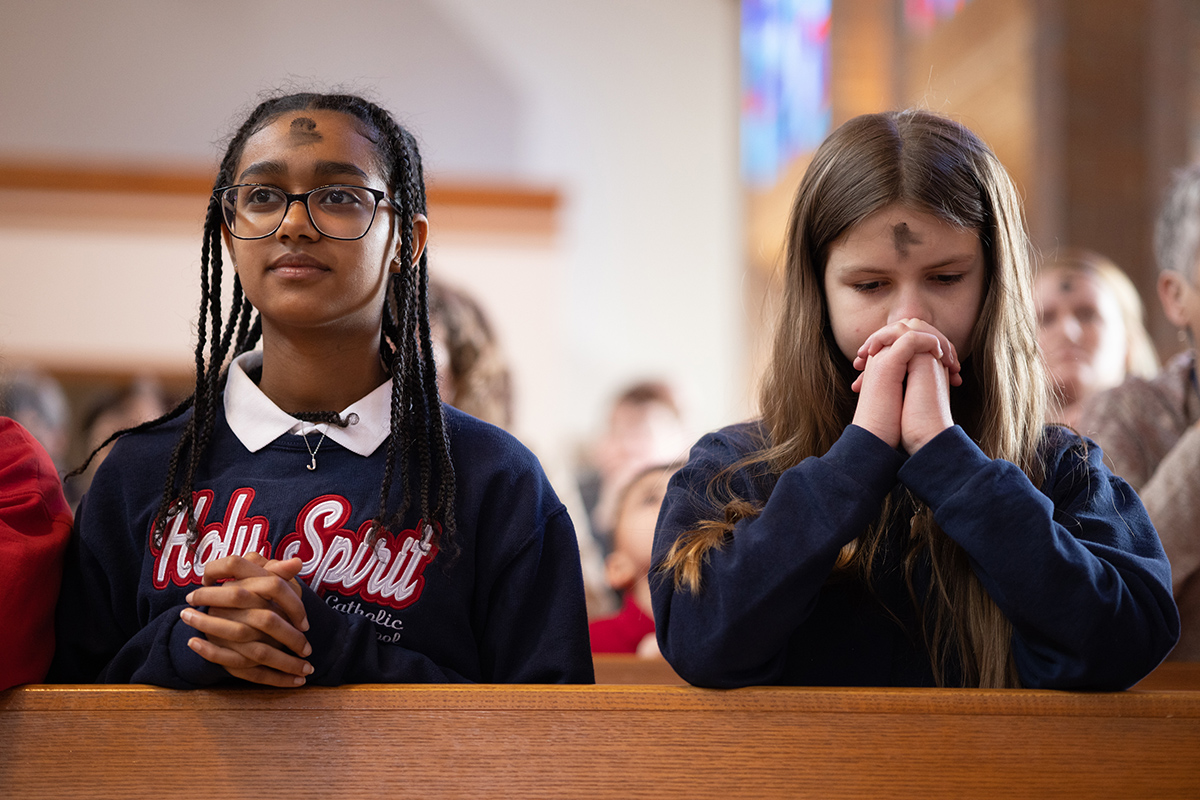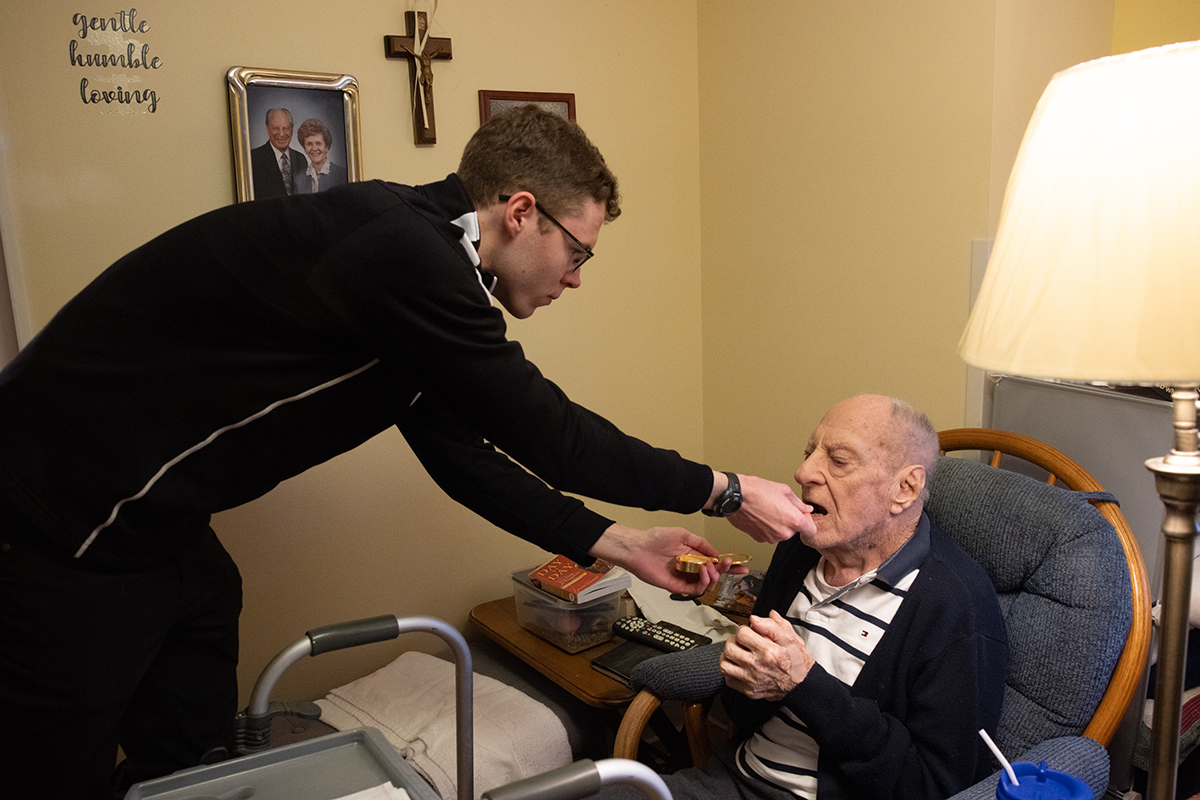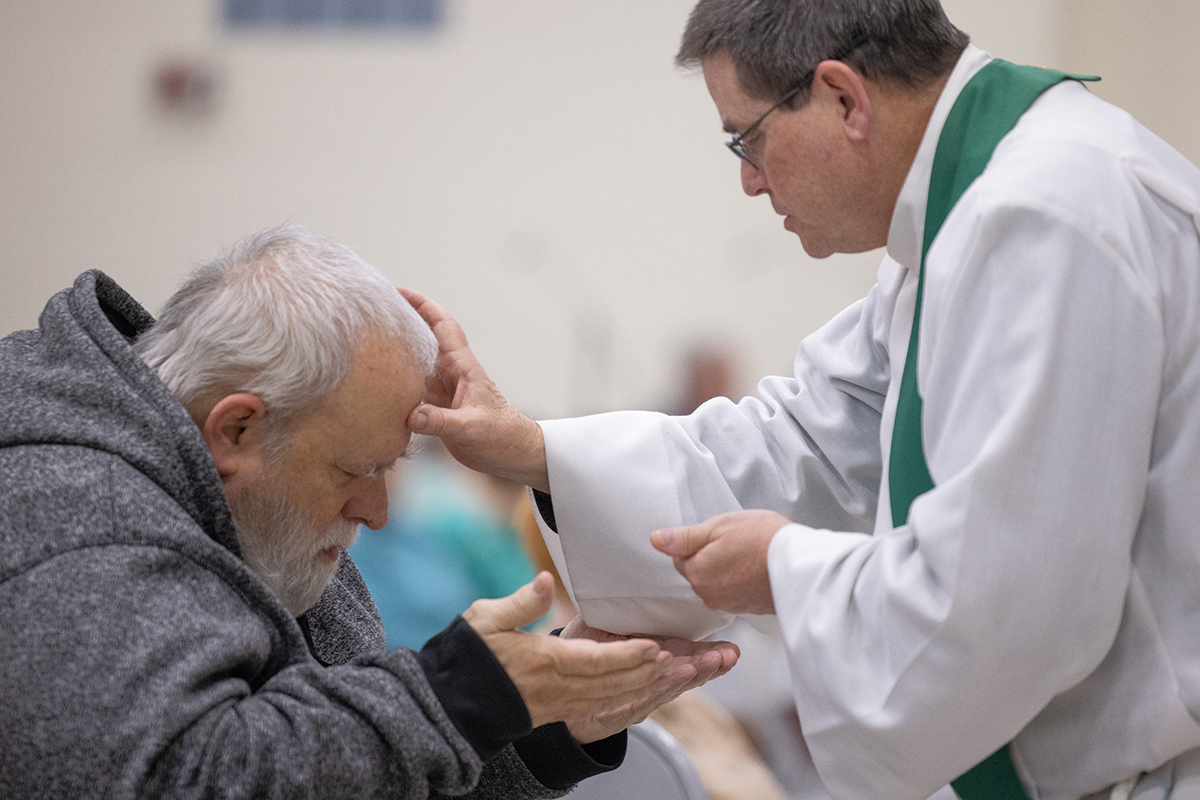Parish restructuring starts new chapter in archdiocese

Archbishop calls for ‘new Pentecost’ to evangelize, make disciples
The Archdiocese of St. Louis will be reshaped from 178 parishes into 135 as part of the All Things New strategic pastoral planning initiative.
Thirty-five parishes will be subsumed, or merged, into neighboring parishes. Additionally, 15 parishes will be merged to create five new parishes. A new personal parish for the Spanish-speaking community in St. Charles County, named St. Juan Diego, also will be established. These parishes will be overseen by nearly 90 diocesan pastors and 17 pastors from religious orders.
Archbishop Mitchell T. Rozanski announced the changes May 27, which have been posted online at allthingsnew.archstl.org.
“In St. Louis, we are called today to start a new chapter in our 200-year history,” Archbishop Rozanski said. “May a new Pentecost set us each ablaze for the Gospel of Christ. We humbly ask the Holy Spirit to guide us, and I hope and pray that we will work together to forge new pathways and ensure that the treasure of our faith may continue to bring healing and hope to a broken world.”
The new structure will be implemented beginning Aug. 1.
Parishes will belong to one of three newly created vicariates, geographic groupings of parishes within the archdiocese. Each vicariate will have a team to provide pastoral and administrative support and will foster fraternity among the priests, develop regional cooperation and coordinate with archdiocesan ministries.
The announcement is the culmination of a nearly 16-month strategic pastoral planning initiative to examine all facets of the archdiocese and strengthen the local Church’s evangelization efforts.
Since the All Things New process was announced on Jan. 25, 2022, the archdiocese has heard from more than 70,000 people through the Disciple Maker Index survey; surveyed 18,000 parish school parents, administrators, teachers, staff and more; compiled sacramental, financial and demographic statistics for every parish and school; met with community, civic and business organizations; held focus groups; and had conversations at the deanery and parish levels.
Several rounds of draft models were proposed, with changes made based on feedback from the proposals. Feedback from pastors, educators and parents recommended waiting until after the announcement of parish changes to make final decisions about schools.
Throughout the All Things New planning process, the primary question has been: “Which parish communities make the most sense to come together in light of demographic shifts, evangelization and social outreach efforts, resources, and priest availability?”
The number of active Catholics in the Archdiocese of St. Louis has declined over the last several decades. In 2021, the archdiocese reported having approximately 490,000 Catholics, the first time since the early 1960s that the archdiocese has reported under 500,000 Catholics.
Parishes have contended with too few priests in large parishes and a disproportionate number of priests in smaller parishes. The number of diocesan priests is declining. This year, the archdiocese ordained five priests. However, without parish changes, the archdiocese anticipated that by 2025, it would have more parishes than diocesan priests serving in parishes. Priests also are aging: Forty-one percent of active and retired priests are currently over 70.
Archbishop Rozanski said that the presence of the Holy Spirit has been evident throughout the All Things New process. After he arrived in St. Louis in August 2020, archdiocesan priests asked him to explore ways to plan for the future of the local Church.
“Many things have changed, even over the past few decades, here in St. Louis, and we need to be able to respond to those changes,” the archbishop said.
Over the past few years, the archbishop heard from Catholics who shared their ideas and experiences of collaboration with other parishes, with examples of prayer and spiritual growth opportunities and social outreach, among others.
“Their sharing of those experiences told me that the Holy Spirit is at work,” he said. “Different people are already taking that initiative to reach out in collaborative ministry between and among parishes.”
He also cited the great diversity of an archdiocese encompassing 10 counties and the City of St. Louis, with a mixture of urban, suburban and rural parishes. Each of those areas presents unique opportunities for ministries – as well as their own challenges in how the Gospel is proclaimed.
All Things New has been “the most comprehensive process for studying ourselves, and looking to see how we can best bring the Gospel and most wisely use our resources available to us,” Archbishop Rozanski said.
This isn’t the end, but the beginning of something new, he said.
“We are a people baptized and confirmed to be disciples of the Lord Jesus and to help others become His disciples,” the archbishop said. “Everything else comes from this.”
Supporting the evangelization mission
Over the next several months, priests will discern with their faithful the best use of parish facilities and resources. Priority will be given to providing the sacraments and necessary pastoral care to all who live within their boundaries. In support of the Church’s mission to evangelize and proclaim the Gospel, Archbishop Rozanski has noted:
Parishes should explore new modes of evangelization. The archbishop has requested that parishes work together and share their resources to more effectively and efficiently go into their communities and bring Christ to others in tangible ways.
Catholic Charities will work with each parish to expand their direct social outreach services throughout all counties within the archdiocese to provide more comprehensive care.
The establishment of three vicariates will allow the Church to bring pastoral service closer to the people and parishes and to foster collaboration across parish boundaries. Parishes should examine their vacant spaces and brainstorm how to use them for the enrichment of the community as a whole.
The Office of Catholic Education and Formation will be exploring possibilities for more comprehensive and accessible Catholic education through the creation of mission schools.
Catholics are taking on responsibility for their own faith and service to others. In the past several months, 2,000 parishioners across the archdiocese participated in the “Evangelization 101” series, empowering them to ignite a new spark of evangelization in their parishes. More evangelization resources will be forthcoming.
BY THE NUMBERS
178 parishes to 135 parishes
17 religious order priests and close to 90 diocesan priests will serve as pastors, with many of them serving more than one parish
35 parishes subsumed
15 parishes merged to create 5 new parishes
1 new personal parish for Spanish-speaking community
155 priest assignments




